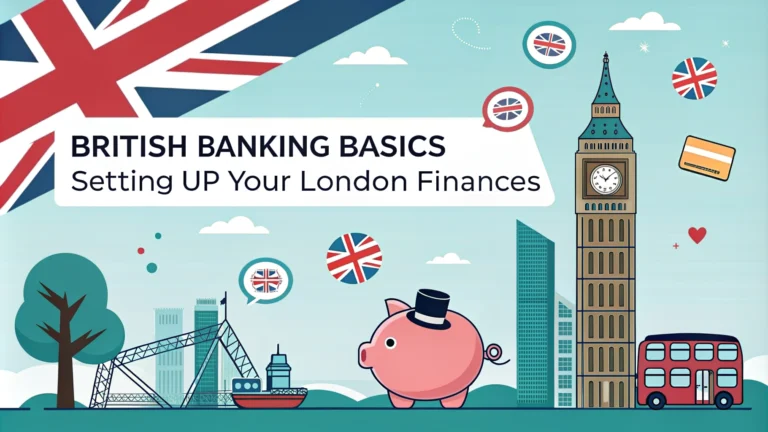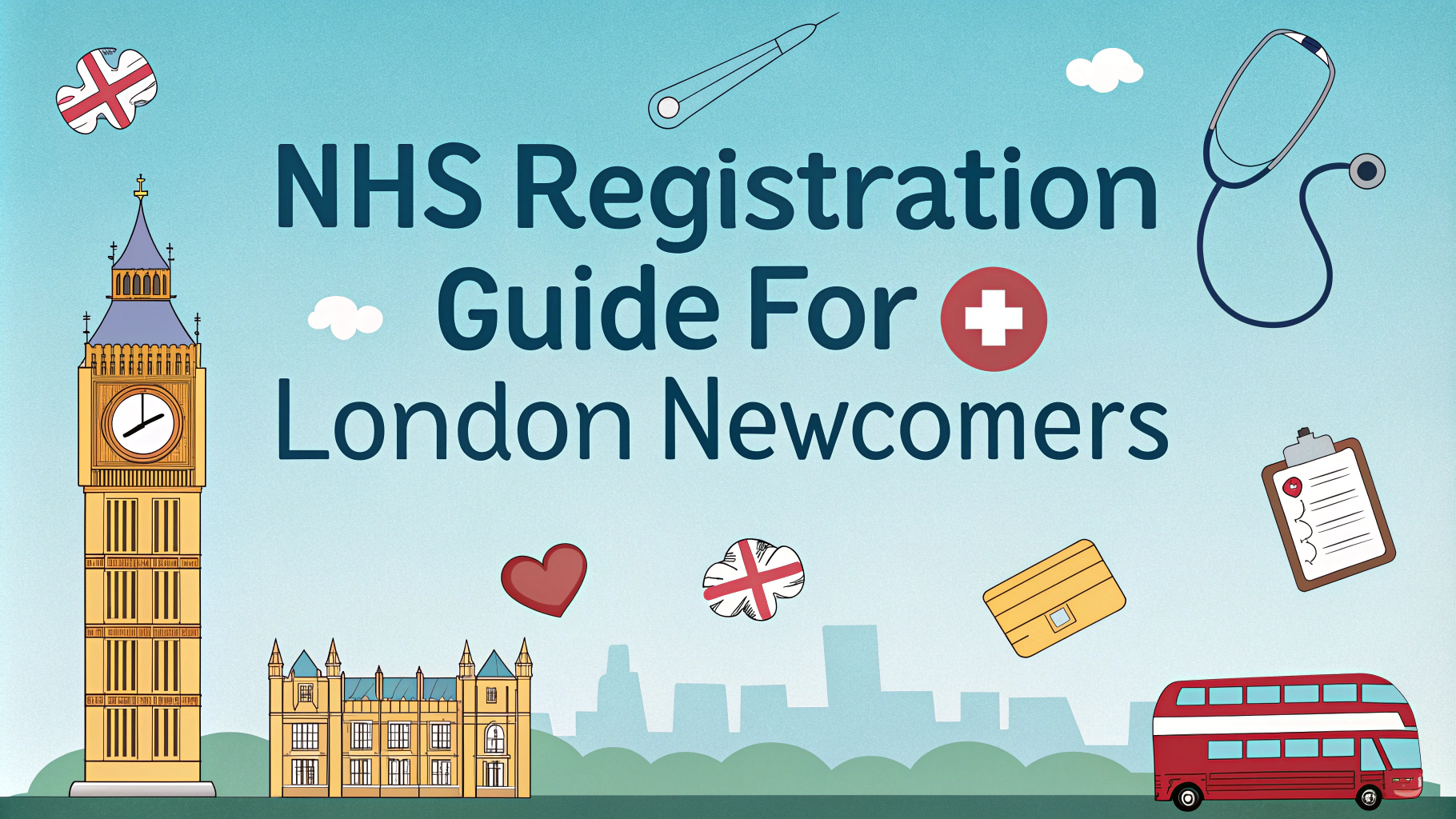Opening a UK bank account is one of the first steps to settling into London life.
Getting your finances sorted quickly helps avoid unnecessary fees and makes managing daily expenses much easier.
This guide covers the essentials of setting up banking in London, from choosing the right bank to gathering required documents.
What You’ll Need to Open a Bank Account
- Proof of ID (passport or national ID card)
- Proof of UK address (rental agreement, utility bill, or council tax bill)
- Proof of employment or student status
- Immigration documents (if applicable)
Best Banks for Newcomers to London
These banks are known for making the account opening process simpler for new residents:
| Bank | Key Benefits | Account Types |
|---|---|---|
| Monzo | Digital-only, quick setup, no proof of address needed | Current Account |
| Revolut | Multi-currency, easy international transfers | Standard, Premium, Metal |
| HSBC | International presence, dedicated new resident program | Basic, Current, Premier |
| Barclays | Extensive branch network, international banking options | Current, Premier, Student |
Digital Banking Options
- Wise: Multi-currency accounts with real exchange rates
- Starling: Fee-free UK current account with quick setup
- Monzo: User-friendly app with budgeting features
Banking Tips for New Londoners
- Apply online before arriving to speed up the process
- Book an appointment if visiting a branch
- Keep all documents organized and readily available
- Consider starting with a digital bank while waiting for traditional bank approval
- Check for student or professional packages if applicable
Common Banking Terms in the UK
- Current Account: Equivalent to a checking account
- Sort Code: 6-digit number identifying your bank branch
- Account Number: Your unique 8-digit identifier
- Standing Order: Regular automated payment for a fixed amount
- Direct Debit: Authorized variable payment to service providers
Next Steps After Opening Your Account
- Set up online and mobile banking
- Order a debit card
- Register for faster payments
- Set up direct debits for bills
- Download your bank’s mobile app
Money Transfer Tips
Consider these options for transferring money from your home country:
- Wise: Low fees, good exchange rates
- Revolut: Free transfers between users
- Bank Transfer: SWIFT transfers for larger amounts
- Xoom: PayPal’s transfer service
Setting Up for Success
Keep copies of all banking documents and correspondence for future reference.
Remember to notify your bank when changing address or contact details.
Consider setting up emergency funds in both your home currency and British pounds.
Banking Security Measures
- Enable two-factor authentication
- Never share PIN or online banking credentials
- Report suspicious transactions immediately
- Keep contact details up to date
- Use secure WiFi for banking operations
Additional Banking Services
Savings Options
- ISAs (Individual Savings Accounts)
- Fixed-term deposits
- Regular saver accounts
- Emergency fund accounts
Credit Building
- Secured credit cards
- Credit builder accounts
- Reporting rental payments
Managing International Finances
- Keep home country account active initially
- Research tax implications
- Consider international banking packages
- Monitor exchange rates
- Plan for regular transfers
Building Your Financial Future in London
Starting your banking journey in London requires planning and patience. Choose a bank that aligns with your needs, whether that’s extensive branch access or digital convenience. Keep your documents organized, stay informed about banking services, and maintain security practices.
Remember that your banking setup will evolve as you settle into London life. Regular reviews of your banking arrangements ensure they continue to meet your changing needs while living in the UK.
Stay connected with your bank’s updates and new services to make the most of your financial experience in London.
FAQs
- What documents do I need to open a UK bank account?
Typically, you’ll need proof of identity (passport or national ID), proof of UK address (utility bill, tenancy agreement, or council tax bill), and proof of immigration status (visa or BRP if applicable). - Which UK banks are best for newcomers to London?
High street banks like Barclays, HSBC, Lloyds, and digital banks like Monzo, Revolut, and Starling are popular choices. Digital banks often have easier application processes for newcomers. - Do I need a permanent address before opening a bank account?
Yes, most traditional banks require a UK address. However, some digital banks like Monzo and Revolut may allow you to open an account with just a temporary address or before arriving in the UK. - How long does it take to open a UK bank account?
Digital banks can approve accounts within minutes. Traditional banks typically take 1-2 weeks from application to receiving your debit card. - What’s the difference between a current account and a basic bank account?
A current account offers full banking services including overdraft facilities, while a basic bank account provides essential services without overdraft or credit facilities. - Are there monthly fees for UK bank accounts?
Most standard current accounts are free, but premium accounts with additional benefits like travel insurance or cashback rewards usually have monthly fees. - How do I set up direct debits and standing orders?
You can set these up through online banking, mobile apps, or in branch using your account number and sort code. Direct debits are controlled by the company collecting payment, while standing orders are controlled by you. - What’s the fastest way to transfer money internationally to my UK account?
SWIFT transfers through banks, or services like Wise (formerly TransferWise), Revolut, or Currencyfair often offer better exchange rates and faster transfer times than traditional banks. - Do I need to inform my bank if I’m moving to London temporarily?
Yes, you should notify your home country bank about your move to prevent your cards from being blocked for suspicious activity when used in the UK. - Can I use my existing credit score from another country in the UK?
No, UK credit scores are separate from other countries. You’ll need to build a UK credit history from scratch.








